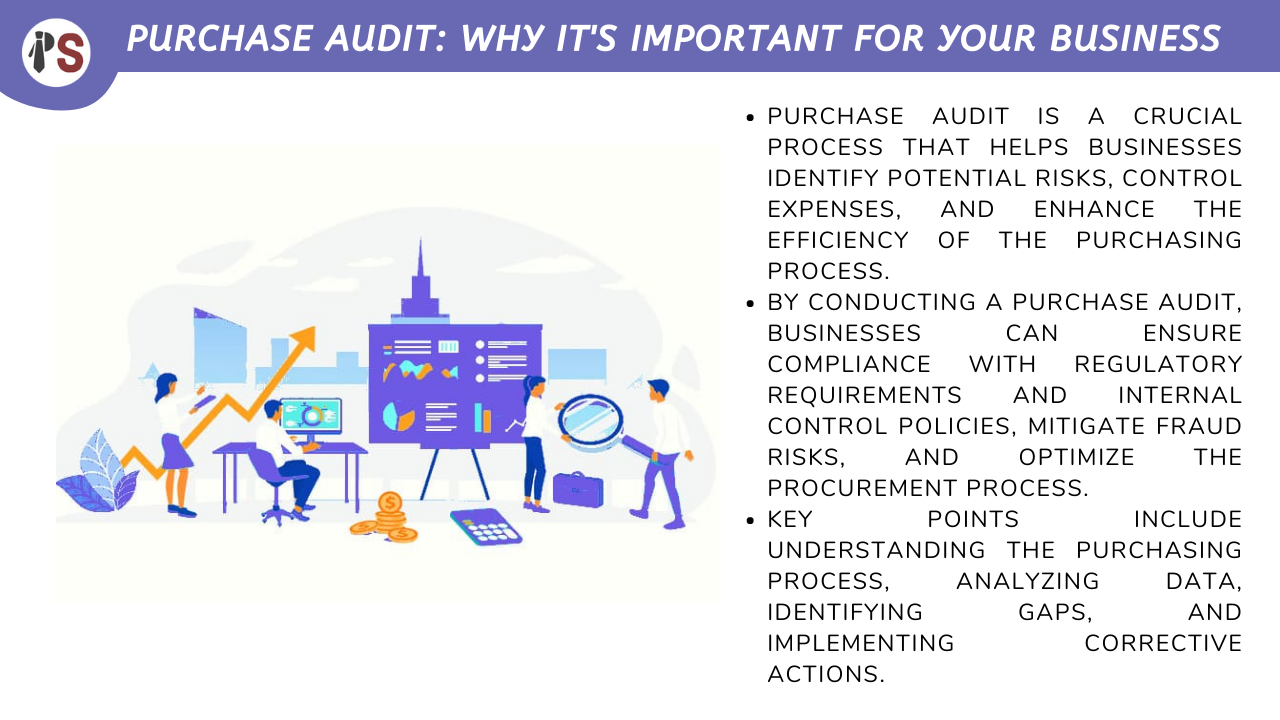
As a business owner, it's essential to keep track of your expenses and ensure that your purchases are legitimate and necessary. A purchase audit can help you achieve this goal by verifying your purchasing procedures and ensuring that they comply with relevant regulations and standards. In this blog, we'll explore the importance of purchase audits and provide some tips for implementing them effectively in your business.
A purchase audit is an internal audit that examines your purchasing procedures to ensure they are compliant with relevant regulations and standards. The audit typically includes an examination of purchase orders, invoices, receipts, and other supporting documents to verify that the goods or services were received, the amounts invoiced are correct, and the payments made are legitimate.
A purchase audit is essential for several reasons, including:
Control Over Expenses: A purchase audit can help you control your expenses by identifying unnecessary or duplicate purchases, pricing errors, and overpayments.
Fraud Detection: A purchase audit can help you detect fraud, such as fraudulent invoices, fictitious suppliers, or kickbacks, and prevent losses.
Compliance: A purchase audit can help you ensure compliance with relevant laws and regulations, such as tax laws, procurement policies, and accounting standards.
Vendor Management: A purchase audit can help you evaluate your vendors' performance and identify potential areas for improvement.
Business Optimization: A purchase audit can help you optimize your purchasing procedures, reduce costs, and improve efficiency.
Here are some tips for conducting a successful purchase audit:
Define the Scope: Before starting the audit, define the scope of the audit and identify the specific areas and transactions to be audited.
Select the Audit Team: Select a team of experienced auditors with the necessary skills and knowledge to conduct the audit effectively.
Prepare a Checklist: Prepare a checklist of the items to be audited, such as purchase orders, invoices, receipts, and other supporting documents.
Verify the Documents: Verify the authenticity and accuracy of the documents and ensure that they comply with relevant regulations and policies.
Identify Exceptions: Identify any exceptions or anomalies in the documents and investigate them thoroughly.
Evaluate Controls: Evaluate the effectiveness of the controls in place to prevent errors, fraud, and noncompliance.
Report Findings: Prepare a report of the audit findings, including recommendations for improvement, and communicate them to the management.
A purchase audit is an essential tool for ensuring that your purchasing procedures are compliant with relevant regulations and standards, controlling expenses, detecting fraud, and optimizing your business. By following the tips provided in this blog, you can conduct a successful purchase audit and improve your business's purchasing procedures.
At Professional Saathi, we offer a range of business consultancy services that help businesses improve their performance, achieve growth, and overcome challenges.
Copyright 2026 © Created By KTPG PROFESSIONAL SAATHI CORPORATE CONSULTANT PRIVATE LIMITED, All Rights Reserved.
Leave Your Comment